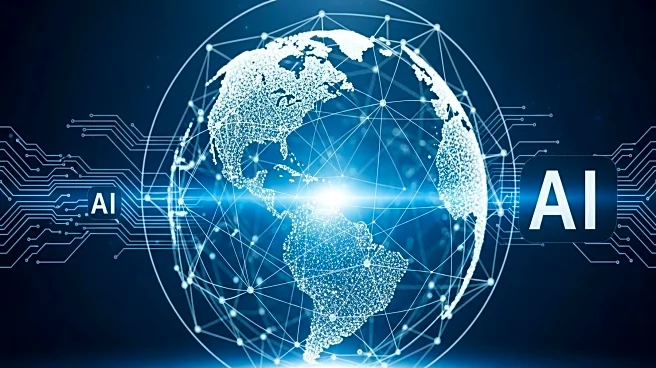What is the story about?
What's Happening?
Tim Berners-Lee, the inventor of the World Wide Web, has expressed optimism about the future of the internet despite its current challenges. Since its creation at CERN in the late 1980s, the web has grown to over 5.5 billion users, transforming communication, commerce, and daily life. However, Berners-Lee acknowledges the web's role in spreading misinformation and enabling authoritarian control. He highlights the threat posed by artificial intelligence, which blurs the lines between human and machine, fact and fiction. Despite these issues, Berners-Lee remains hopeful about the web's potential to foster human creativity and connectivity.
Why It's Important?
The web's evolution has had profound impacts on global society, but its misuse poses significant risks. Misinformation can undermine democratic processes and public trust, while authoritarian regimes exploit the web for surveillance and control. The rise of AI further complicates the landscape, challenging the ability to discern truth. Berners-Lee's insights are crucial as they call for reforms to address these issues, ensuring the web remains a tool for positive change. His optimism suggests that with the right measures, the web can continue to be a force for innovation and collaboration.
What's Next?
Berners-Lee's advocacy for web reform may influence policymakers, tech companies, and civil society to prioritize solutions that mitigate misinformation and AI-related challenges. Efforts could include developing technologies that enhance transparency and accountability online, as well as fostering international cooperation to uphold digital rights. Stakeholders might also explore ways to balance AI advancements with ethical considerations, ensuring the web remains a space for genuine human interaction and creativity.
Beyond the Headlines
The ethical implications of web reform are significant, as they touch on privacy, freedom of expression, and the balance between innovation and regulation. Long-term shifts may include a reevaluation of digital governance frameworks and the role of tech giants in shaping online discourse. Berners-Lee's vision could inspire a new era of digital responsibility, where the web is harnessed for societal benefit rather than exploitation.
















